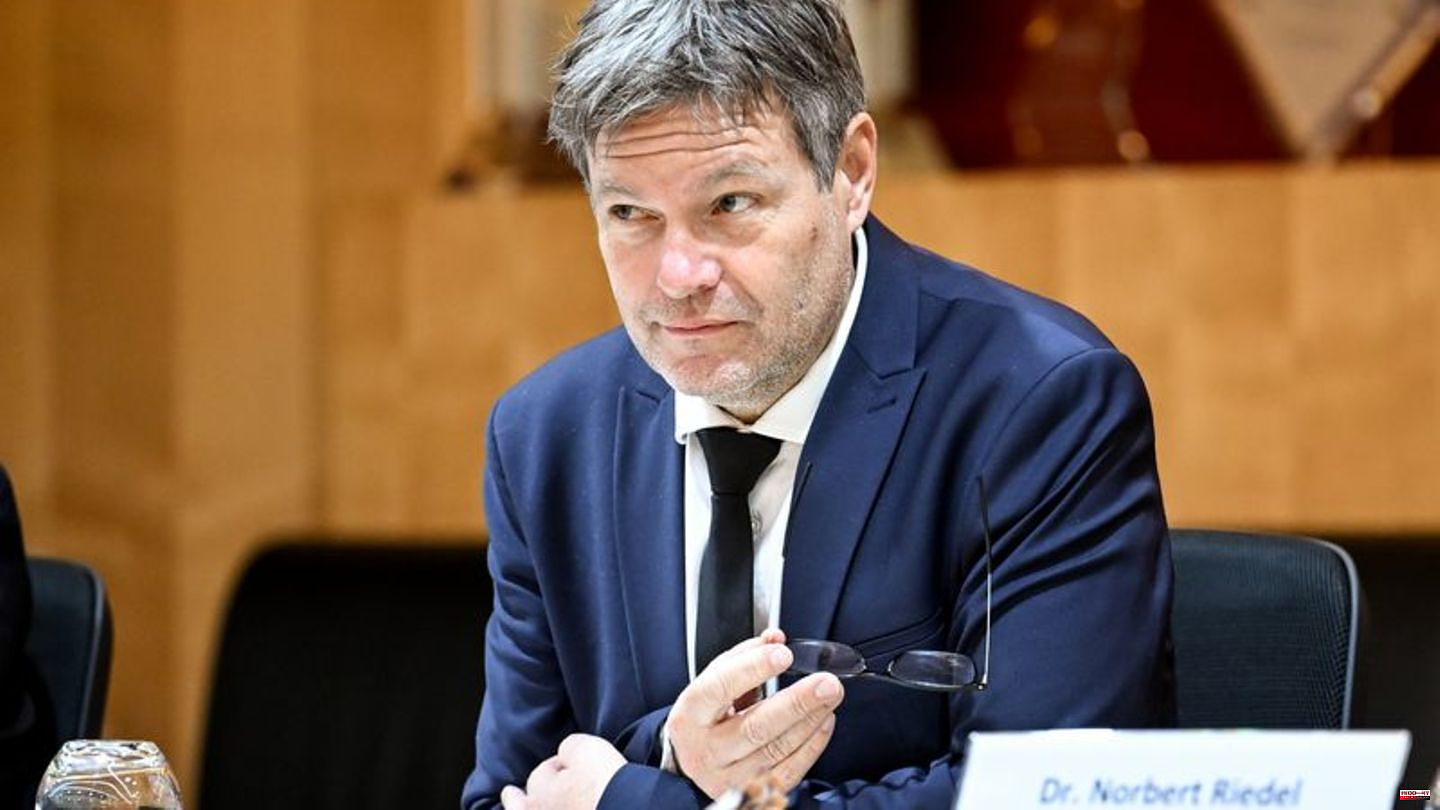It is a balancing act for Economics Minister Robert Habeck and the German economy: Germany's trade relations with other countries in Asia are to be expanded in order to avoid one-sided dependencies on China. But that takes time - and the signal should not be a decoupling from the People's Republic, because it is too important for German companies for that. At the Asia-Pacific Conference of German Business in Singapore, the formula "China plus X" is making the rounds.
The Russian attack on Ukraine and Germany's vulnerability due to its high dependency on Russian gas supplies heralded a "turning point" in trade policy as well. The magic word is diversification. The aim is to spread risks more broadly. To this end, the federal government wants to change the instrument of investment guarantees in order to increasingly direct foreign investments by German companies to countries other than China.
Habeck said on Sunday in Singapore that it was about balancing markets. The way of thinking has to be changed. Siemens CEO Roland Busch, chairman of the Asia-Pacific Committee, also said the economy must diversify. But this is a process that takes time.
Habeck looks particularly at South Asia
"We have to reorganize our trade policy," Habeck said on Saturday. "We need other countries, other partners." In an ntv interview, Habeck said that dependency on China is almost 100 percent in certain areas, such as important raw materials. "If China were to disappear as a sales market, some German industries would not be able to cope with it." For a long time, the low production costs were considered "the only thing that saves". In addition, China has thrown huge deposits of raw materials cheaply onto the market.
The South Asian markets outside of China, which are developing very strongly, are of great interest to the German economy. However, that does not mean that economic decoupling from China is at stake, Habeck made clear. Germany takes a different course than the USA on this issue. The People's Republic is an immensely important trading partner for the German economy. Many German companies produce locally.
China has been criticized in the West for human rights violations, saber-rattling against Taiwan and its outspoken foreign policy stance. Only recently did the federal government stop Chinese investors from investing in German high-tech companies. However, the participation of a Chinese group in a port terminal in Hamburg was made possible.
"Robust answers" to China's approach
The federal government is currently developing a new China strategy - Habeck is hammering in pegs. You shouldn't be naive. If China forces companies to relocate their development departments to China if they want to sell goods there in order to "siphon off knowledge", the answer should be "robust".
"But that's not the same as saying that we don't want to trade with China at all," said the Green politician. "For 30 years we've basically made this apolitical view of China the principle of our trade policy. Now there's an extremely political view of China. But it will take us a few years to slowly work our way out of it."
Habeck called for speedy talks about a free trade agreement between the EU and India. "The world is not waiting for Europe or Germany to get into trouble." Negotiations with India, for example, are anything but easy, as they say behind the scenes.
Human rights situation bad in other countries
In addition to the Vice Chancellor, the Chancellor is also traveling in Asia: Olaf Scholz visited Vietnam on Sunday and is expected at the economic conference in Singapore on Monday. Even before the conference there, the news came that the traffic light coalition had agreed on a realignment of trade policy. This also includes the exit from a controversial Energy Charter Treaty, which has long been criticized by the Greens and environmental organizations. In addition, the European-Canadian free trade agreement CETA is to be ratified quickly and the partnership with the USA is to be deepened.
In Singapore on Sunday, Habeck also spoke to ministers from Pakistan and the Philippines. Both countries would be interested in economic agreements. However, such relationships would always have to be accompanied by reforms to improve the human rights situation.
So these are not easy conversations to have. In Singapore, however, there were also good appointments without any compromises for the Economics Minister: On the fringes of the conference, he was the godfather when German companies signed agreements with partners from Singapore - one company came from Habeck's hometown of Flensburg.








